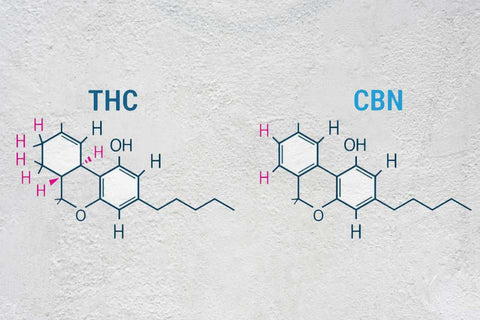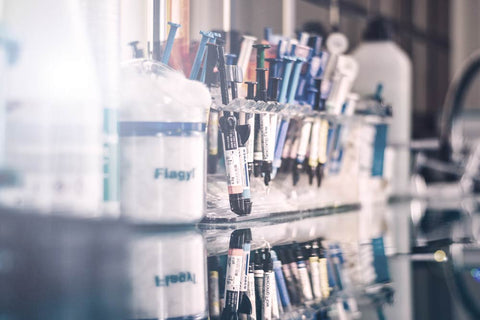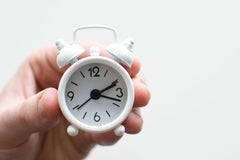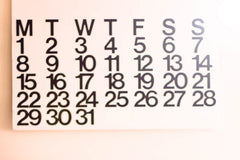by Tom Russell December 05, 2022

Does CBD show up on a drug test?
How long do THC and CBD stay in your system?
Actions to take to pass a drug test

Drug tests are a reality for many people in the UK. If you work in transport, energy or construction you may be tested regularly to ensure that you meet the necessary safety standard. And if you drive, cheek swab tests can also be administered to anyone suspected of driving under the influence.
Not knowing if CBD will cause you to fail a drug test prevents many people from giving cannabidiol a try. When your job – or driving licence – depends on passing these tests, it is understandable that you wouldn’t do anything to risk failure.
Athletes also have to be careful that the supplements they are using aren’t banned by the World Anti-Doping Agency. However, CBD is legal in the UK and with the simple precautions outlined here, it can be used without fear of a positive screening result.
 CBD is one of nearly a hundred cannabinoids found in cannabis plants. It isn’t intoxicating, so it won’t get you high. Since it isn’t a controlled substance, drug tests aren’t designed to look for this compound. However, most products sold as CBD contain a range of other cannabinoids.
CBD is one of nearly a hundred cannabinoids found in cannabis plants. It isn’t intoxicating, so it won’t get you high. Since it isn’t a controlled substance, drug tests aren’t designed to look for this compound. However, most products sold as CBD contain a range of other cannabinoids.
They often include small amounts of THC and CBN which, in larger measures, remain illegal. While CBN is a controlled substance, modern drug tests in the UK only screen for THC. If the level of THC reaches a defined threshold you will fail the test.
Since many CBD products contain trace amounts of THC, there is a legitimate concern that continued use of a CBD product could allow THC to build up in your system. And this could lead to a positive drug test. To avoid this, it’s important to choose products with low or no THC.
 Any product that is completely free of THC will not show up on a drug test. However, it is very rare that CBD products are really ‘THC free’ or ‘zero THC’. Even the best extraction methods used on legal hemp strains leave behind tiny traces of other cannabinoids. Unfortunately, some products will be listed as “THC free” or “zero THC” when this is not the case. These claims can be unhelpful and misleading. What they mean is that they contain very low levels of THC.
Any product that is completely free of THC will not show up on a drug test. However, it is very rare that CBD products are really ‘THC free’ or ‘zero THC’. Even the best extraction methods used on legal hemp strains leave behind tiny traces of other cannabinoids. Unfortunately, some products will be listed as “THC free” or “zero THC” when this is not the case. These claims can be unhelpful and misleading. What they mean is that they contain very low levels of THC.
Products labelled as ‘broad-spectrum’ or ‘CBD isolate’ shouldn’t contain any THC but don’t take this at face value. The only way to be sure of what the product contains is to look at the third-party lab tests. These are the results of the analysis carried out by labs not otherwise connected to the company. They will give you accurate details of exactly what is contained in the bottle.
However, a note of caution, cannabinoid analysis will only detect THC if it reaches a certain level. This means that certificates showing ‘none detected’ or ‘below quantifiable level’ (BQL) may still contain tiny traces. These minute amounts won’t cause you to fail a test on their own but if you take it frequently or combine it with other CBD products you increase the risk of failure.
Drug tests can be given in different situations, each with different methods and materials. As a result, there are a range of pass/fail thresholds: Workplace urine test – These look for levels of THC-COOH which is a substance created when THC passes through your liver. The recommended cut-off for detecting THC in urine is 50ng/mL. A nanogram is a tiny amount, equal to 1 billionth of a gram.
Workplace urine test – These look for levels of THC-COOH which is a substance created when THC passes through your liver. The recommended cut-off for detecting THC in urine is 50ng/mL. A nanogram is a tiny amount, equal to 1 billionth of a gram.
Workplace saliva test – These have a much lower threshold and are usually used when testing for recent drug use. The European Workplace Drug Testing Society guidelines recommend a cut-off of 10ng/mL.
Roadside ‘drugalyser’ tests – These are swabs taken when a police officer suspects that you have been driving under the influence of drugs. The lowest amount to fail the test is 2ng/ml.
Hair follicle tests – Drug metabolites will show up in your hair strands, which allows for long-term drug testing. A sample of hair is taken and analysed in a lab for the presence of drug metabolites. This type of testing can typically detect drug use in the last 90 days.
Blood test – This method looks for the presence of drug metabolites in the blood. It is typically only effective for detecting drug use in the last 4 hours. The UK legal limit for THC in the blood is 2 micrograms per litre of blood (2ug).
 CBD has a half-life of 3 to 5 days and should have completely left your system after two weeks. The exact time depends on several factors including your metabolism, how regularly you use it, how much you use and how you use it.
CBD has a half-life of 3 to 5 days and should have completely left your system after two weeks. The exact time depends on several factors including your metabolism, how regularly you use it, how much you use and how you use it.
Studies have shown that how you take CBD can dramatically impact how long it stays in your body. Some CBD products, such as soft gel capsules, have been found to be undetectable after 6 hours.
There isn’t enough research to tell us how long CBD will remain detectable in the urine. What we do know is that CBD is expelled from the body mainly through faeces and less through urine. We also know that THC can remain in your urine for up to 15 days after use. And finally, we know that different factors can influence how long CBD stays in your system. This includes:
So, there are many different factors that would influence how long CBD is detectable in urine, but it’s worth noting that current drug tests do not look for CBD in urine, so there is no cause for concern.
 THC is affected by the same factors as CBD. It can be detected in blood, urine, saliva and hair but its concentration reaches its highest peak shortly after its use. It leaves the systems of most people between 1 day and 1 week. Some factors, such as an individual’s genetics and liver function, can cause it to be present for longer. THC and its metabolites have been detected in fat up to a month later and in hair up to 90 days after use.
THC is affected by the same factors as CBD. It can be detected in blood, urine, saliva and hair but its concentration reaches its highest peak shortly after its use. It leaves the systems of most people between 1 day and 1 week. Some factors, such as an individual’s genetics and liver function, can cause it to be present for longer. THC and its metabolites have been detected in fat up to a month later and in hair up to 90 days after use.
By carefully following these steps you can confidently take CBD, even when expecting a drug test. The most important part of this process is finding a trustworthy retailer who stocks genuine products and is transparent with all their manufacturing details. Once you know that you are buying genuinely ‘low THC’ items you can start to enjoy the boost provided by top-quality CBD.

December 13, 2019
I definitely wouldn’t risk taking CBD if you have to take regular drug tests – especially athletes or those working in law enforcement! Which is a shame because it has so many benefits. Thanks for sharing!
Comments will be approved before showing up.
Tracked & signed
Orders over £35
Orders over £199
Soil Association certified
Chat, email or call
Tom Russell
Author
Tom Russell writes extensively about CBD oil and other groundbreaking food supplements. He and his wife share their home with two daughters and a lifetime’s collection of books.